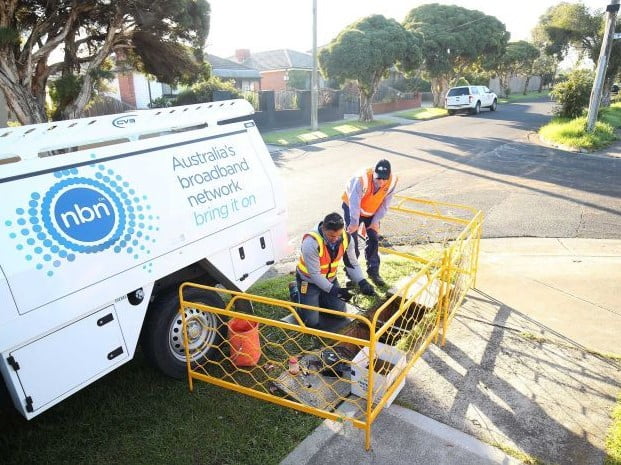The government has instructed NBN Co to withdraw and revise the Special Access Undertaking variation that it lodged with the Australian Competition and Consumer Commission in March.
The Special Access Undertaking (SAU) variation lodged by NBN Co includes a pricing model that would have locked in increased prices – particularly on entry-level plans – and had been strongly opposed by the retail service providers (RSP) that connect customers to the national broadband network.
Communications minister Michelle Rowland and Finance minister Katy Gallagher have written to NBN Co to outline the new government’s views, and its expectations of the SAU variation process.
Ms Rowland has also written to the Australian Competition and Consumer Commission (ACCC) to provide the government’s views on the special access undertaking variation process and that it believes that with more consultation with service providers, the NBN Co should be able to submit a revised SAU by early next year.

The government said that it respects the ACCC’s independence and that the recent change of government was an opportunity for more consultation with service providers prior to a revised SAU moving through the variation process in early 2023, with implementation from mid-2023.
There are two key issues identified by government that a period of consultation would aim to resolve.
The first is the need for the government to issue a new Statement of Expectations to NBN Co that confirms the government’s aims for the NBN and provides “a realistic expectation about future returns to shareholders.”
NBN Co’s fiscal position is unsound. After nine years of the Coalition’s broadband plan, the NBN is a lemon: overpriced, unreliable, slow – with about 50 per cent built using an obsolete technology.
The second is the need for NBN Co to rebuild its relationship with service providers and consumers.
NBN Co’s senior management team has been tone deaf to the concerns of RSPs and consumers. Critics of the previous government’s broadband policy, NBN Co’s direction and management decisions have been banned, blocked and ignored. NBN Co has become opaque and with the increased secrecy, trust has diminished.
It is possible that many within the industry believe that the fastest way to rebuild the trust that NBN Co needs to move forward will be for the board and senior management team to be replaced.
The NBN is Australia’s greatest infrastructure disaster, and it will take considerable effort for the Government to fix the mess.
Earlier this month the US Federal Communications Commission chair Jessica Rosenworcel proposed increasing the broadband speed standard from 25/3 Mbps to 100/20 Mbps.
The 25/3 Mbps broadband speed standard was set in January 2015, at a time before the US telecommunications industry set about rolling out Fibre to the Premises and upgraded Hybrid Fibre Coax with DOCSIS 3.1.
After more than $60 billion of taxpayer funds spent over the past decade building a yet to be completed NBN, it is not capable of meeting the broadband standard that the US FCC intends to adopt this year.
The FCC is also proposing a national goal of 1 Gbps/500 Mbps for future years.
It is vital that the government provides similar guidance to NBN Co in its new Statement of Expectation.
Unambiguous and clear guidance is needed, not just for NBN Co, but also for the service providers and the telecommunications market more broadly.
The current pricing model expires on 30 November, and the government has instructed NBN Co to submit an interim pricing model to the ACCC for approval. The interim Wholesale Broadband Agreement that contains product pricing would cover the period from 1 December until the revised SAU is approved.
The government has instructed NBN Co to “ensure that the interim arrangements are the same as, or an improvement on,” the WBA that expires on 30 November.
For the government, time is a major factor. The telecommunications industry and consumers are expecting fast action to occur and any perception that it will be business as usual at NBN Co could harden views against the NBN.
It is also now less than three years until the next federal election and voters will expect to see significant results achieved before they next go to the polls.
The introduction of 5G fixed wireless, low earth orbit satellite and increased mobile broadband data allowances mean that customers now have reasonable alternatives to the NBN. If you’re one of the 45 per cent of homes connected to the NBN by Fibre to the Node, the alternatives could be enticing.
It is not in the national interest for the NBN to be a failure. The various world broadband rankings provide a guide as to how effective the NBN is. Currently, Australia is a third world broadband nation.
The fact that the nation’s more than 12 million premises can connect to the NBN is irrelevant. Other nations are connecting up to 50 times this many premises to telecommunication networks. It is the reliability, performance and future proof nature of the network that matters, and by any reasonable comparison the NBN is second rate.
Let me ask you this question. Why do most of the streaming media and local television companies stream at 720p and call this high definition? 720p was an interim standard that has been obsolete for about 15 years, yet here, in Australia, it is the standard used for most of the streamed content.
4K televisions and devices have been sold in Australia since 2017.
Could it be that the increased traffic would stress the NBN and service provider networks? Would it cost RSPs too much with NBN Co’s current pricing model?
One thing that RSPs have agreed on is the need for the data usage charge, known as the connectivity virtual circuit (CVC) to be removed from NBN Co’s revised pricing model.
This anachronism is a major cause of congestion and poor performance across the nation’s telecommunication networks. Networks should be built to meet demand, and New Zealand, where a flat connection fee is charged, is leading the way in meeting consumer expectations.
With the introduction of content delivery networks, where popular content is moved closer to consumers, the true cost of data has diminished significantly over the past decade.
It is time for the CVC to become a historical footnote.
Australia needs world class broadband to enable businesses to compete in the global digital economy.
Telecommunications is an essential service that underpins society and provides the foundation for many of the nation’s goals including inclusiveness, empathy, universal service and universal access.
The government has a mountain to climb resetting broadband policy and it is vital that the new policy includes unambiguous goals, certainty for the telecommunications industry and better outcomes for consumers.
The government has now taken the first step to rebuild confidence in the telecommunications industry.
Mark Gregory is an Associate Professor in the School of Engineering at RMIT University
Do you know more? Contact James Riley via Email.

